Sunscreen is a vital component of any skincare routine, playing the main role in protecting our skin from the harmful effects of UV rays. Whether you're heading to the beach, going for a hike, or simply stepping outside on a sunny day, sunscreen is your first line of defense against premature aging, sunburns, and the risk of skin cancer. In this article, we will explore the world of zinc oxide sunscreens — a powerhouse ingredient renowned for its broad-spectrum protection against both UVA and UVB rays.
Benefits of Zinc Oxide Sunscreens:
The benefits of Zinc Oxide sunscreen are numerous. It stands out as a superhero in the realm of sunscreen ingredients. Unlike chemical sunscreens that absorb UV rays, zinc oxide is a physical barrier, creating a shield on the skin's surface. This unique characteristic allows it to effectively reflect and scatter both UVA and UVB rays, providing broad-spectrum protection. Additionally, zinc oxide is known for its gentle nature, making it suitable for all skin types, including sensitive and acne-prone skin. As we delve into the best zinc oxide sunscreens, we'll explore the myriad benefits that make this mineral a standout choice for sun protection.
How to Choose Zinc Oxide Sunscreen:
Selecting the right zinc oxide sunscreen involves considering several key factors. The Sun Protection Factor (SPF) rating is crucial, indicating the level of protection against UVB rays. Opt for a sunscreen with a broad-spectrum label to ensure defense against both UVA and UVB rays. Water resistance is essential, especially if you plan to be in the water or sweat during outdoor activities. For those with specific skin concerns, such as sensitivity or allergies, choosing a sunscreen labeled as fragrance-free or formulated for sensitive skin can enhance the overall sun protection experience. As we explore the top zinc oxide sunscreens, we'll keep these criteria in mind to help you make an informed decision for your sun care regimen.
Please note: Some of the links on this page are affiliate links, meaning, at no additional cost to you, ClinicAdvisor® may earn a commission if you click through and make a purchase. Our editor independently selects each product featured.
The 7 Best Zinc Oxide Sunscreen :
There are so many zinc oxide sunscreens to choose from on the market, for the face or body, and all budgets! Here are 7 from our list:
1- Thrive Reef Safe Sunscreen SPF50
| Key Features : This is a product offered by Thrive Natural Care, a company known for its eco-friendly and natural skincare products. Thrive Sunscreen SPF 50 is designed to provide broad-spectrum protection against UVA and UVB rays, using non-nano zinc oxide as its active ingredient. It is reef-safe, biodegradable, and free from harmful chemicals such as oxybenzone and octinoxate. | 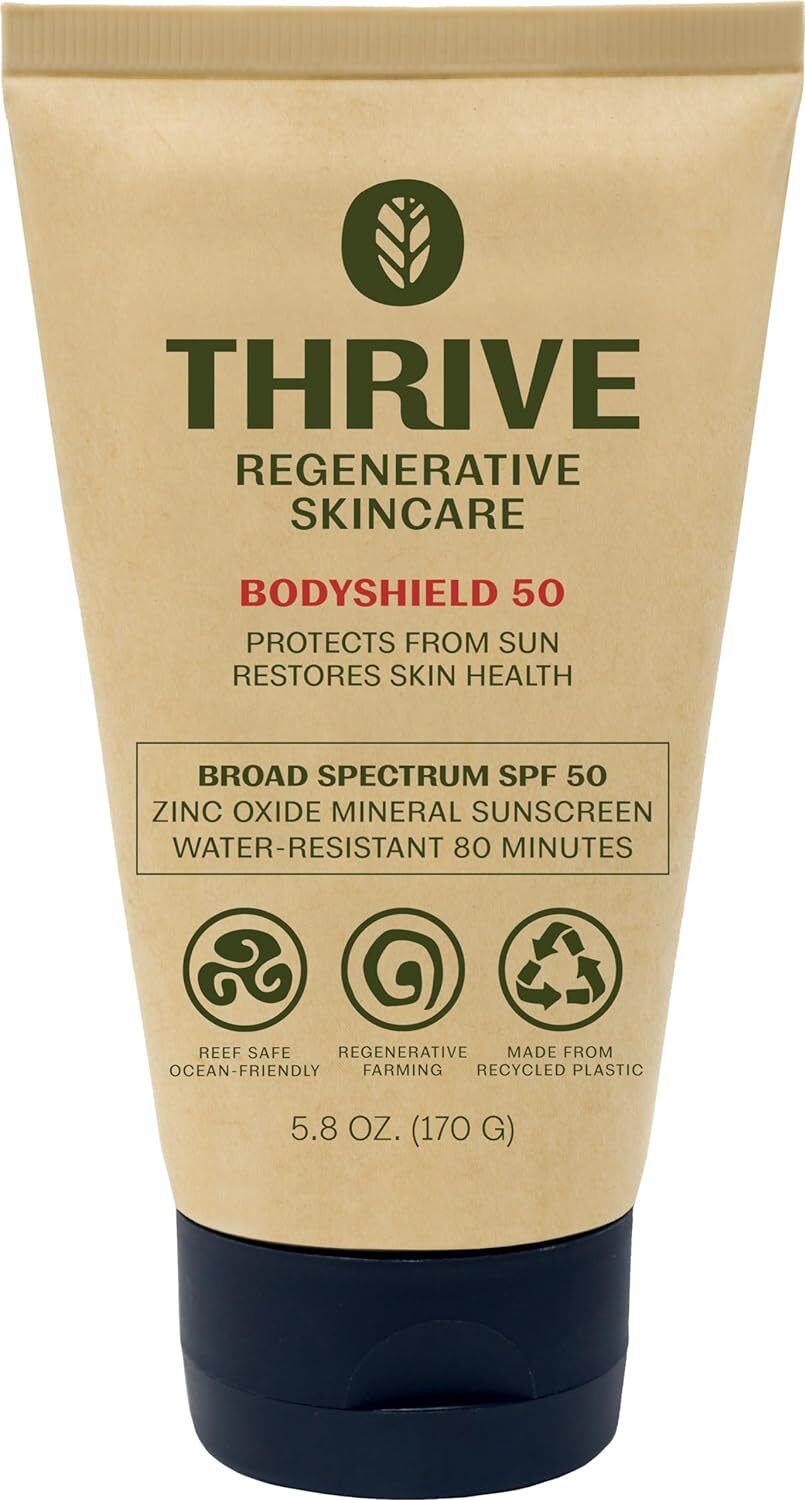 |
2- Eryfotona Ageless Sunscreen Zinc Oxide SPF 50 Sunscreen
| Key Features:
| 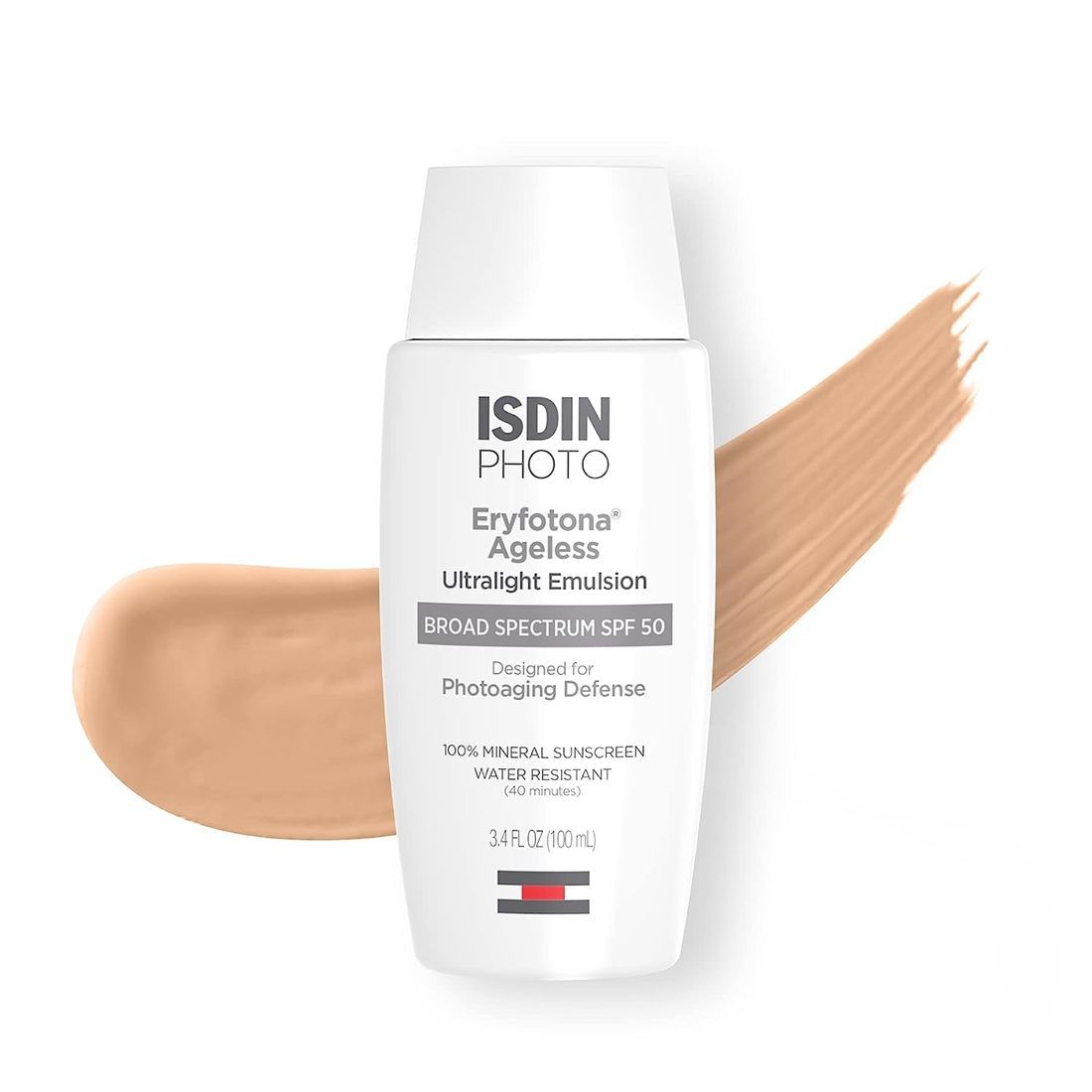 |
3- TruKid Sensitive Care Sunscreen Lotion, SPF 30
| Key Features: TruKid sunscreen for sensitive skin is a natural, non-toxic, and hypoallergenic product designed for children and those with delicate skin. It offers broad-spectrum protection with SPF 30+, using mineral-based ingredients like non-nano zinc oxide. Free from harsh chemicals, synthetic fragrances, and parabens, it is also water-resistant, moisturizing, and eco-friendly, making it safe for coral reefs and marine life. | 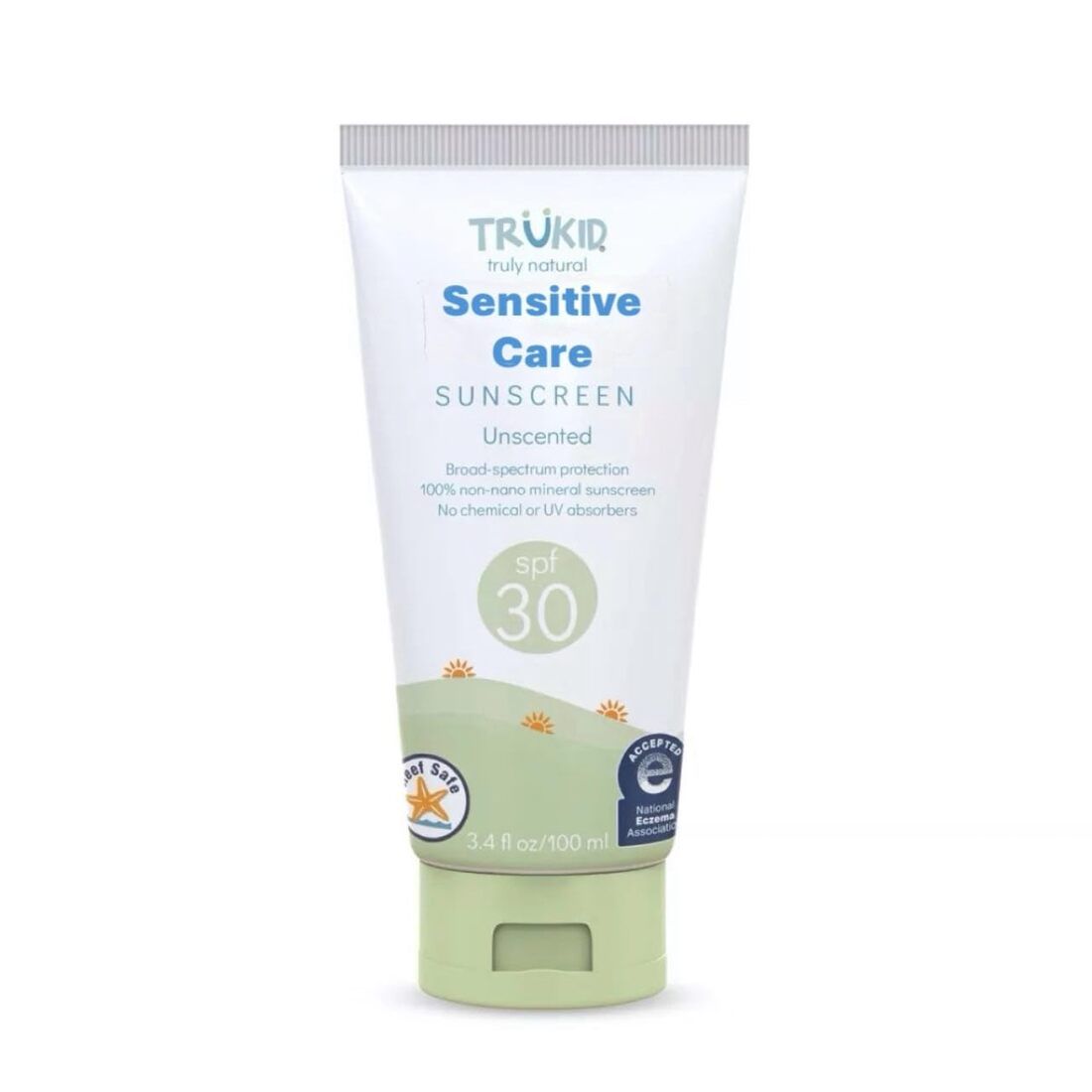 |
4- Sun Bum Mineral SPF 50 Sunscreen Lotion | Vegan & Reef Safe
| Key Features: Unlike many of the other options listed here, this sunscreen is scented, so it may not be suitable for everyone. But it's still hypoallergenic and if you're not sensitive to fragrance, you'll love that tropical smell! | 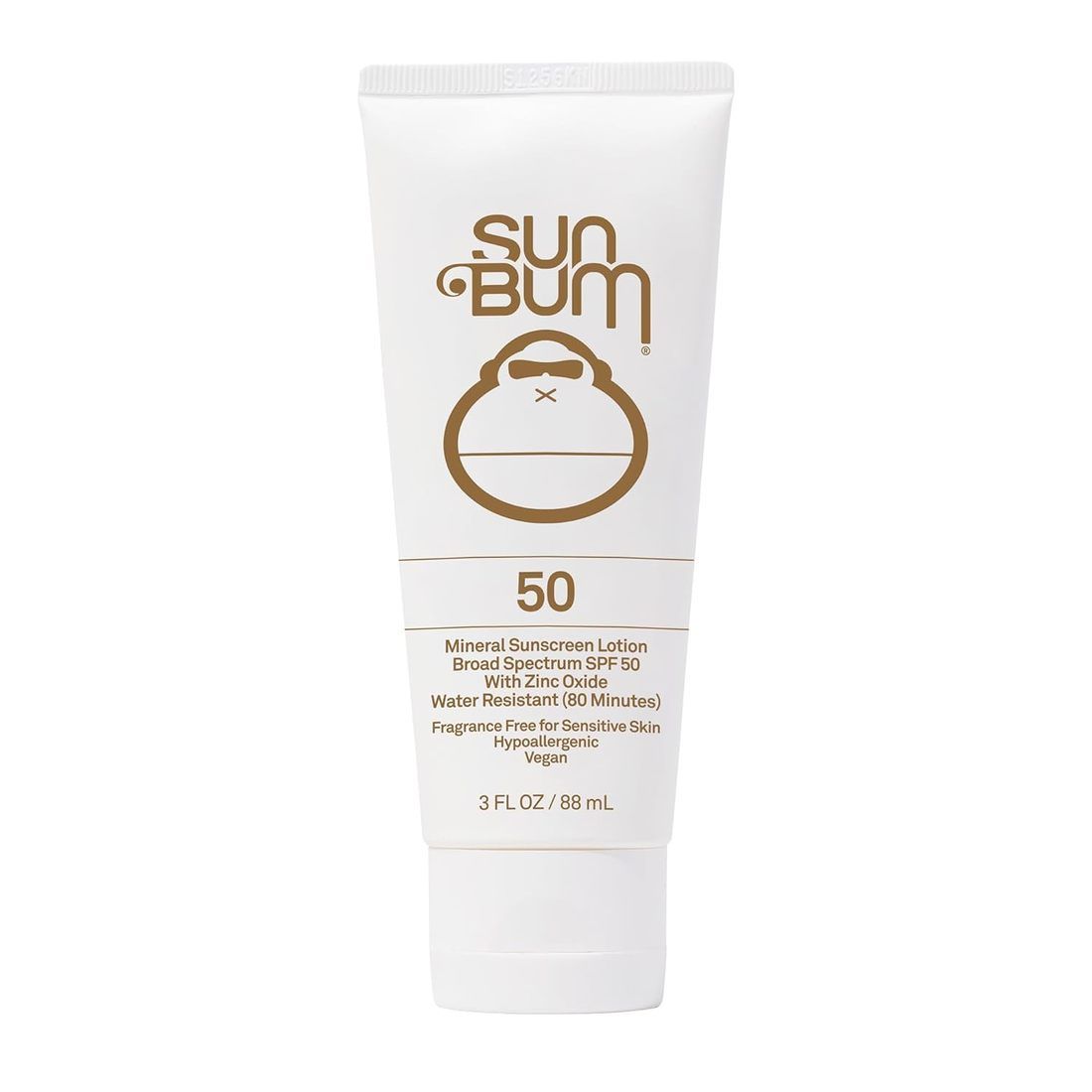 |
5- Neutrogena Sheer Zinc SPF 50
| Key Features: Neutrogena followed the natural wave by launching this formula made with 100% zinc oxide. Free of fragrance, paraben, and coloring, this hypoallergenic sunscreen is non-comedogenic (so does not clog pores) and leaves no marks. It is water and sweat-resistant for 80 minutes. You can also get the version for the face | 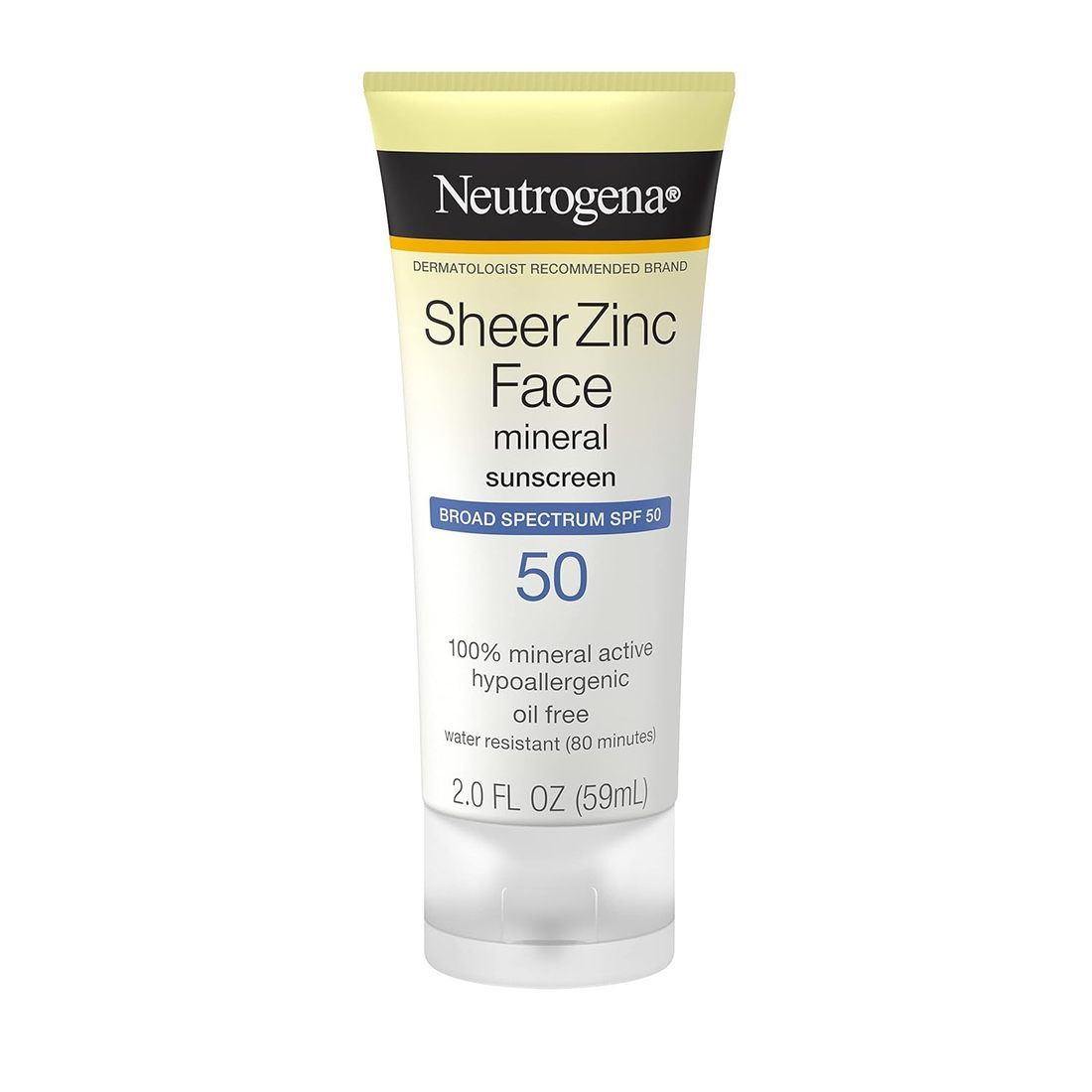 |
6- Australian Gold Botanical Sunscreen SPF 50
| Key Features: This oil-free, sulfate-free, and paraben-free sunscreen is composed of titanium dioxide and zinc oxide. Tested by dermatologists and pediatricians, it is hypoallergenic, non-greasy, and rich in vitamins with its unique combination of antioxidant-rich plants from Australian botanical ingredients. With an SPF of 50, it is cruelty-free and will resist water and perspiration for up to 80 minutes. | 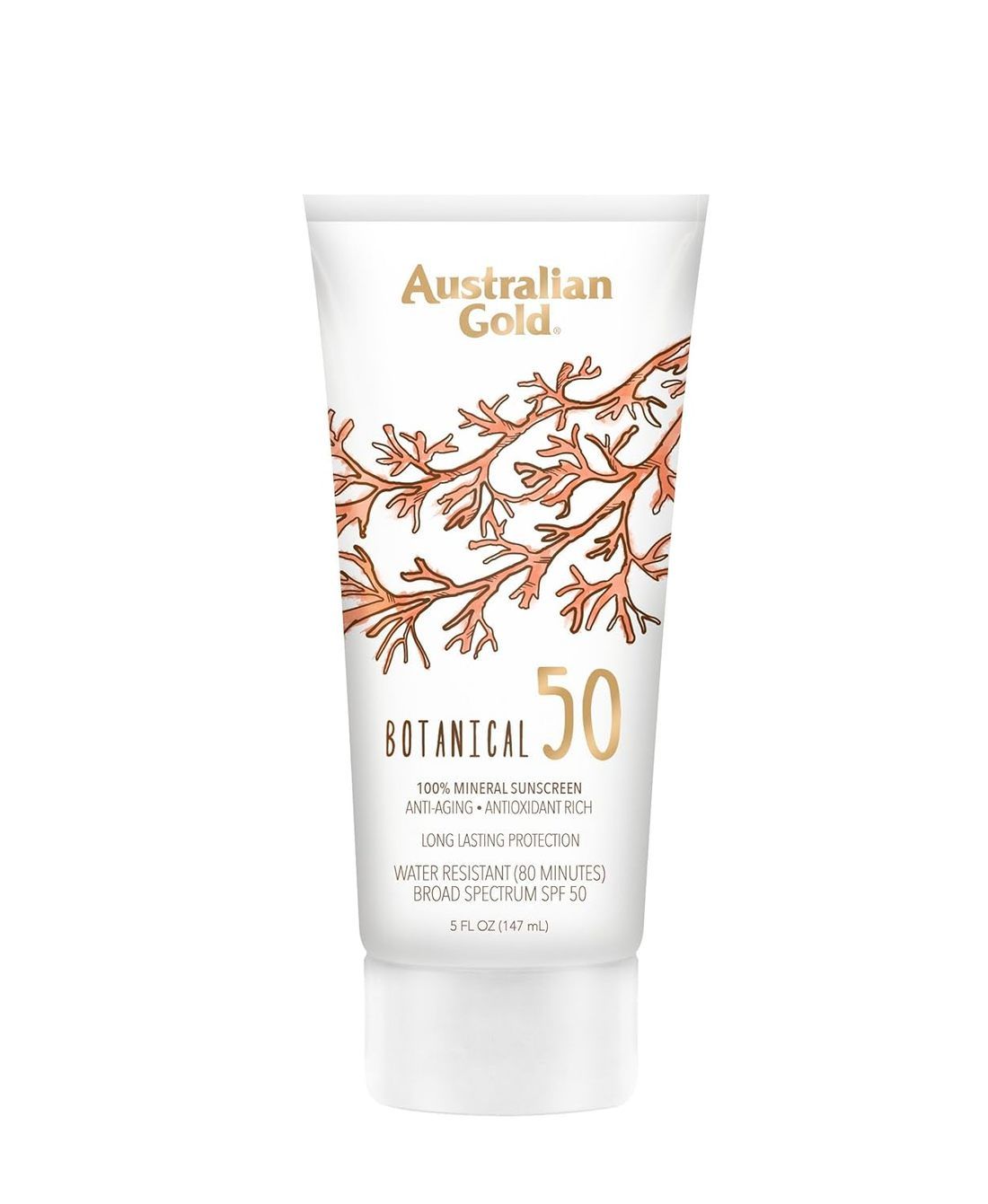 |
7- Colorescience Total Protection Face Shield SPF 50
| Key Features : It has a silky and lightweight texture that seamlessly integrates with the skin, garnering praise for its smooth application. With an SPF rating of 50 and the ability to resist water for up to 80 minutes, the formula features 12% zinc oxide as its active ingredient. Additionally, it incorporates shea butter esters, ensuring not only sun protection but also providing a hydrating and softening effect on the skin | 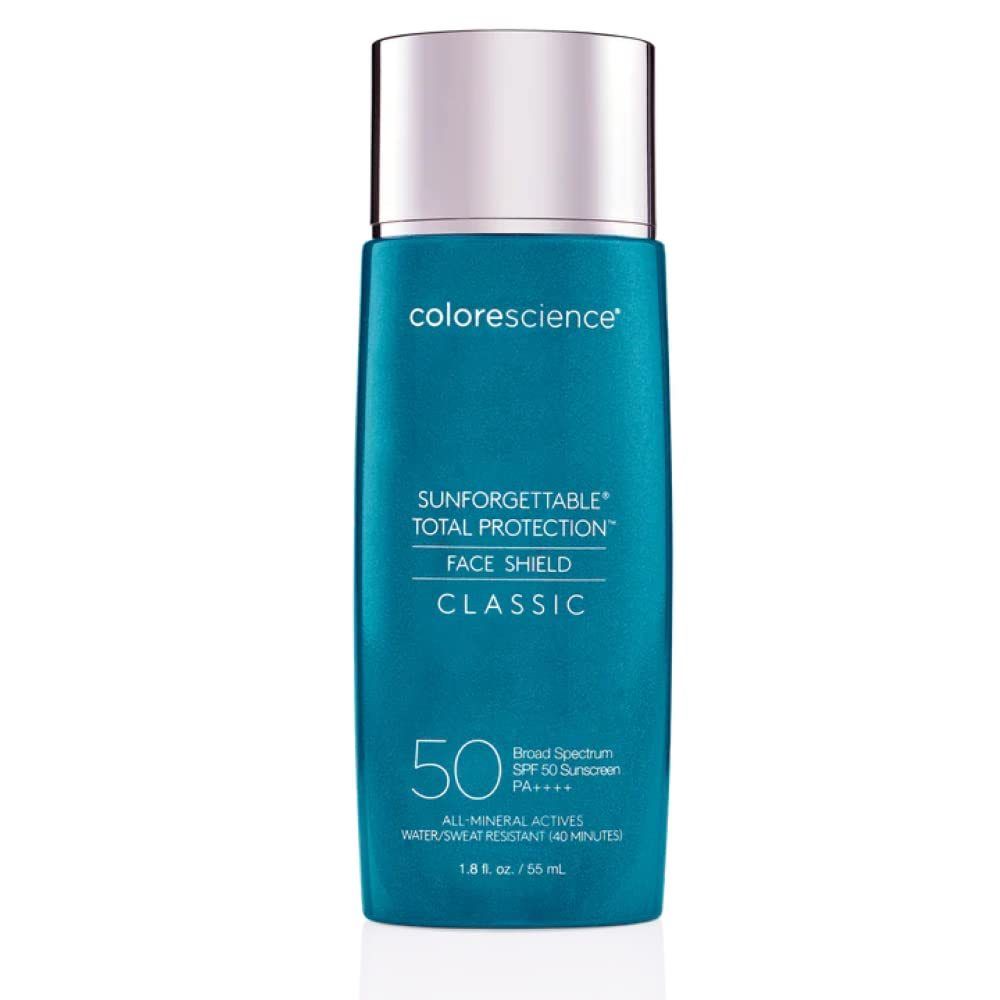 |
|
What is Zinc Oxide Sunscreen?
Zinc oxide sunscreen is a type of mineral sunscreen containing the active ingredient zinc oxide, a white, powdery mineral that acts as a physical barrier on the skin. Providing broad-spectrum protection against both UVA and UVB rays, zinc oxide reflects and scatters UV radiation without requiring absorption. Known for its gentleness on the skin, it is often recommended for those with sensitive skin or allergies. While some zinc oxide sunscreens may leave a white cast on the skin, formulations have improved over time. The sunscreen is effective immediately upon application, water-resistant for activities like swimming, and commonly used in products for various skin types, including those for children.
What Are The Types of Zinc Oxide Sunscreen?
There are several formulations and types of Zinc oxide sunscreens to accommodate diverse preferences and needs. Traditional creams and lotions offer a classic approach, while sprays provide a convenient application for larger body areas. Stick or solid formulas target specific regions, and tinted sunscreens help alleviate the typical white cast associated with zinc oxide. Powdered options allow for easy touch-ups, gels provide a lighter texture, and water-resistant formulations cater to active lifestyles. Some zinc oxide sunscreens come in combination products with additional active ingredients for enhanced protection. Choosing the right type depends on individual preferences, skin type, and intended use, ensuring a versatile range of options for effective sun protection
Why Use Mineral Sunscreen?
Mineral sunscreens are ideal for those who cannot tolerate chemical filters or have sensitive, fragile, or allergic skin. Unlike chemical filters, mineral filters are not allergenic, provided they are nanoparticle-free.
Also note: only mineral filters can be labeled organic. You will be able to find many organic mineral sunscreens, by checking that they have certification.
Finally, the advantage of a mineral sunscreen is that it acts directly (compared to 30 minutes after application for the chemical filter). It is deposited on the skin, without penetrating the epidermis, to reflect UV rays like a screen.

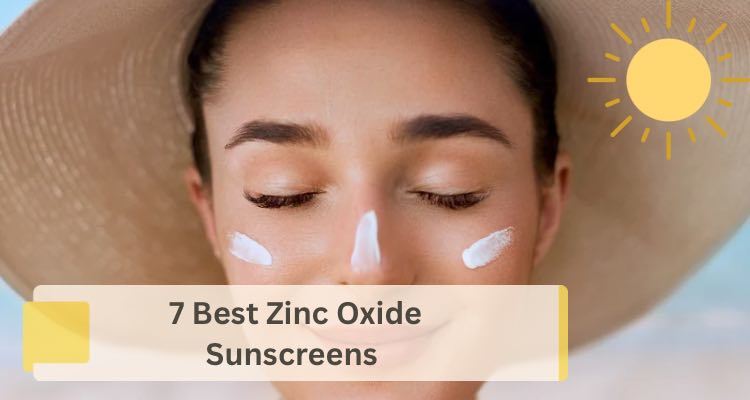

Share Your Opinion, Please